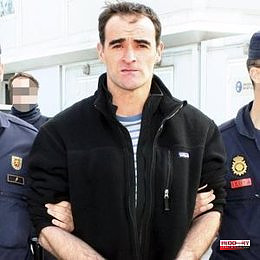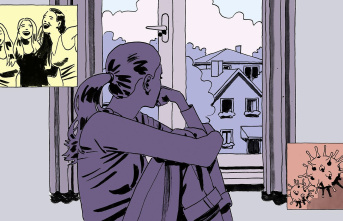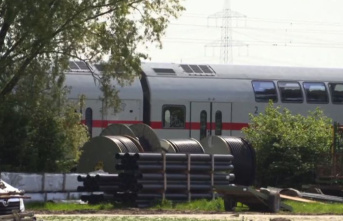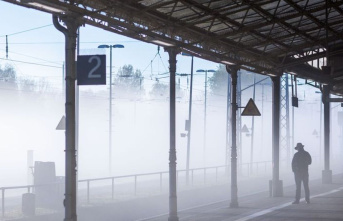He argued that the ETA member's solitary confinement was justified by the "real risk" of a "bloody attack"
MADRID, 21 May. (EUROPA PRESS) -
The State Attorney's Office warned in its appeal to the European Court of Human Rights (ECHR) that if the 'Atristain doctrine' were consolidated it could be invoked as a precedent in future trials to invalidate them, as well as harm the fight against terrorism, while reproaching Strasbourg that with that ruling in favor of ETA imposed a reinforced standard on Spain, higher than that required until now.
Through three briefs, to which Europa Press has had access, the State Legal Services tried to neutralize the demand made by ETA member Xabier Atristain, alias 'Golfo', where he denounced that his fundamental rights were violated because during the five days that He remained in police facilities, he only had a court-appointed lawyer, which -- he argued -- led him to make self-incriminating statements that allowed the National High Court (AN) to sentence him to 17 years in prison.
The ECHR considered in its ruling on January 18 that Atristain's solitary confinement was legal but "of a too general nature", for which it declared that Spain violated his rights to a fair trial and to choose a lawyer, and ordered to compensate him with 20,000 euros.
The Lawyer's Office appealed on April 13, with a 28-page brief whose main argument is that said ruling supposes "unduly lowering the threshold to determine when a possible restriction of the right to have legal assistance can affect the entire procedure" or, what which is the same, establishing "an excessively high standard", higher than the one used until now, to validate the statements made by defendants accused of terrorism assisted by public defenders.
Spain observed this extra requirement in the fact that the judge was asked for an extra reason to authorize Atristain's solitary confinement, replying that it was not necessary because when the magistrates give the green light to these restrictive measures, they do so by weighing all the information available. your reach. And, in this case, "the Civil Guard had gathered a significant amount of evidence" against the ETA member.
He also warned that "the consolidation of the doctrine contained in the Aristrain judgment against Spain could lead to a review and possible annulment of future national trials in which the criminal responsibility of persons accused of terrorist crimes is analyzed when the new statements made by the accused contradict those made previously in the presence of his court-appointed attorney, despite the existence of other evidence".
In a further step, he warned that "the misapplication of the ECHR jurisprudence in the judgment not only constitutes an erroneous precedent that could affect the consistency and coherence of the evolution of this jurisprudence, but also raises serious issues of importance general, since it could negatively affect, beyond what would be reasonable, the fight against terrorism".
In this sense, he recalled that "terrorism is a global problem that has caused a very high number of victims in Spain as a result of the multiple attacks by ETA", claiming that the authorities must be able to count on "legal measures that increase the effectiveness of their persecution to prevent the commission of attacks".
Spain understands that there is a "differential element" in terrorism cases that must be taken into account when interpreting the right to a trial with all guarantees, which would justify taking "extreme precautions to prevent police investigations from being frustrated" .
"In particular, the incommunicado regime of a detainee suspected of belonging to a terrorist organization and the appointment of a court-appointed lawyer are intended to avoid the possible concealment of the sources of evidence based on the possible collusion between freelance lawyers choice," he said.
However, it held that "the erroneous application of the ECHR's own jurisprudence in the Atristain case" required "a clarification by the Grand Chamber, to prevent it from being invoked in the future as a precedent in cases involving an issue as important as the admissibility of the court-appointed lawyer system in investigations of terrorist crimes".
However, on May 9, the ECHR rejected Spain's appeal, with which the sentence is now final. Thus ended a judicial journey through Strasbourg that began when the Lawyers opposed the ETA claim in a letter from November 2017, which was later extended, in February 2018, to also reject their economic claims.
In the almost 50 pages that add up to both allegations, the Government stated that article 6.3.c of the aforementioned Convention --by which Spain was sentenced-- establishes the right of an accused to "defend himself or to be assisted by a defender of his choice and, if he lacks the means to pay, to be able to be assisted free of charge by a court-appointed lawyer, when the interests of justice so require".
With Atristain, he asserted, "there were good reasons, which proved to be true, to agree to incommunicado detention." In the first place, because there were well-founded suspicions that he "was a member of the terrorist group ETA, responsible for almost 900 murders in Spain." Second, because it was believed that he "was responsible for hiding weapons and materials to make powerful explosive devices, which should be placed in a safe place to prevent the perpetration of new attacks or the concealment of the material."
"If the incommunicado regime had not been applied," affirmed Spain, Atristain "could have come into contact with people from the terrorist organization, by himself or through third parties, to frustrate the seizure of the weapons and explosives, and to speed up the commission of a bloody attack in which they were used"; and "other people aware of the existence of the caches and their location would have been put on alert, who could have destroyed the evidence."
The Lawyer's Office went into detail about the five days, from September 29 to October 4, 2010, in which Atristain was held incommunicado at the police headquarters to make it clear that "he had free legal assistance from the very moment of his arrest, provided by an independent lawyer appointed by the Madrid Bar Association by lottery from a list of lawyers specializing in criminal defense with more than 10 years of professional practice".
It specified that "at the beginning of each statement, the detainee was read his rights, including the right not to testify against himself," that "the lawyer could tell the detainee out loud not to testify or not to do so in a certain way," and that when the "brief period" of solitary confinement ended, he had a lawyer chosen by him.
Consequently, it ruled out that Atristain had suffered "defenselessness", reproaching the ECHR for, while basing its ruling on the fact that Spain did not sufficiently justify its incommunicado regime, adopt a "formalist approach" by which it concludes that this affected the whole of the criminal process without making "a true analysis" of it, an analysis that --he stressed-- both the AN and the Supreme Court did when sentencing 'Golfo'.
"Perhaps the reflection that should be made is that this detention system, under intense judicial control, of the prosecutor, of the lawyers appointed by the Bar Association and of the forensic doctors under the orders of the judge, is the one that has best demonstrated its effectiveness. in the fight against the brutal and merciless terrorism of ETA with adequate guarantees for the respect of the conventional rights of the detainees", he stated.
3












